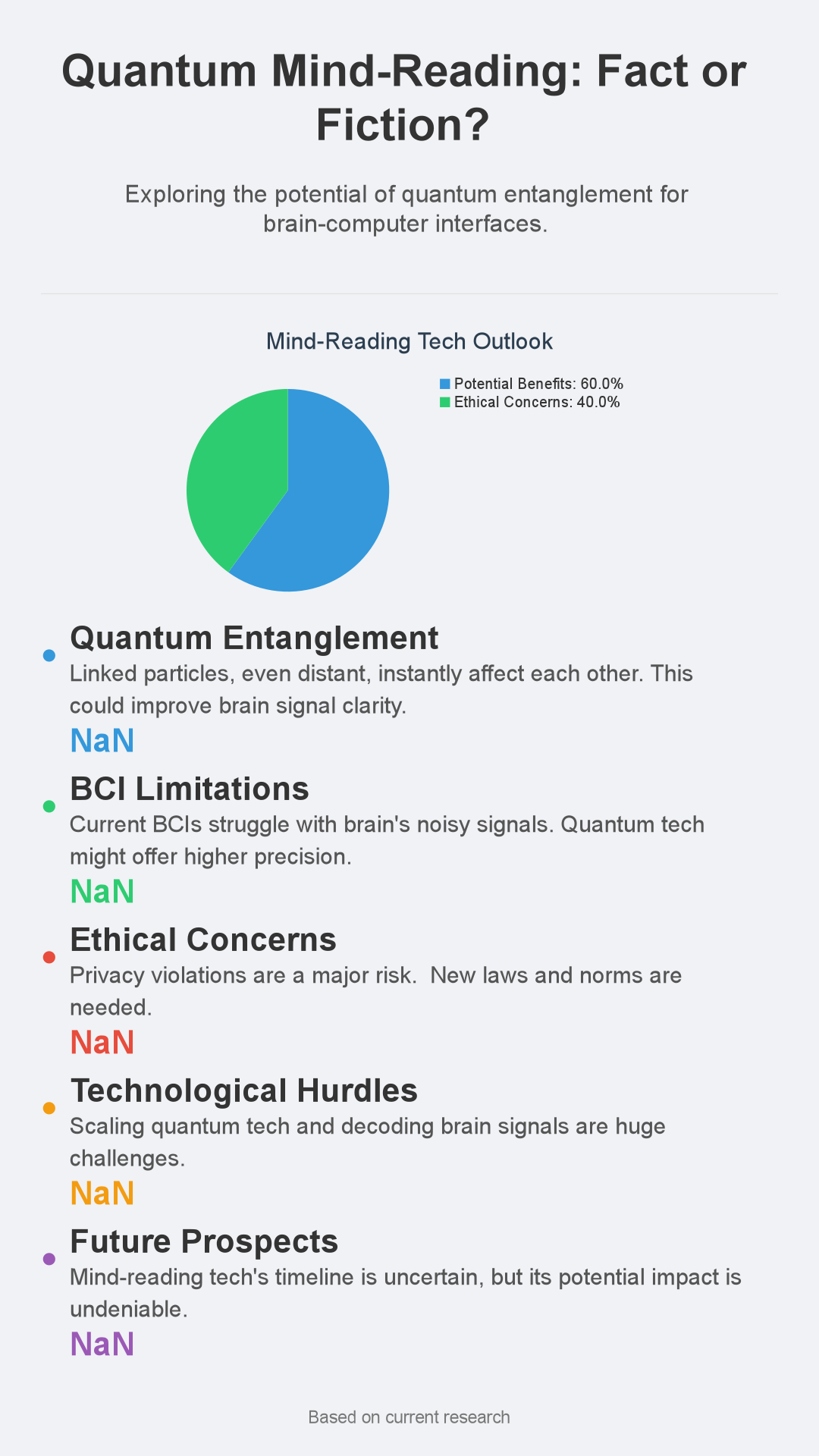
Could quantum physics unlock the secrets of the human mind? This video explores the fascinating – an
Have you ever wished you could know what someone else is thinking? Forget science fiction – quantum physics might make mind-reading a reality. Learn why, and consider the implications, by liking and following!
The idea of mind-reading technology feels like something from a science fiction movie. But what if this seemingly fantastical concept is closer to reality than we think?
Quantum entanglement, a phenomenon where two particles remain linked regardless of distance, is being explored as a potential key to unlocking the brain’s secrets.
Key Point 1: Quantum Entanglement and Brain-Computer Interfaces (BCIs)
Quantum Entanglement: The Spooky Action at a Distance
Quantum entanglement is, simply put, bizarre.
Two entangled particles share a linked fate, even across vast distances. Measuring one instantly reveals the state of the other, seemingly faster than light.

.
Current BCI Limitations: The Noise Problem
Current BCIs, while promising, face significant limitations. Imagine trying to hear a whisper during a hurricane.
The brain constantly generates electrical signals, and isolating those related to specific thoughts is incredibly difficult.
The exceptional sensitivity of quantum measurements could potentially solve this noise problem. Using entangled particles to probe neural activity might achieve a level of precision currently impossible.
Several research groups are exploring this, though it’s early days. A future where quantum entanglement allows us to “read” brain activity with unprecedented clarity is conceivable.
The potential for privacy violation is deeply unsettling. Imagine a world where your private thoughts, fears, and dreams are easily accessible.
This raises serious ethical questions about freedom of thought and the very definition of privacy.
Legal and Societal Challenges: Navigating Uncharted Territory
Our current legal framework is unprepared for mind-reading technology. Existing privacy and data protection laws are inadequate.
We’ll need entirely new legal structures and societal norms to address the ethical complexities this technology presents.
Ethical Guidelines: The Need for Responsible Innovation
Developing mind-reading technology requires a strong ethical framework.
We need transparent research, rigorous oversight, and international collaboration to create guidelines that prioritize human rights and prevent misuse.
Key Point 3: The Technological Hurdles and Future Prospects
Scaling Up Quantum Technologies: A Herculean Task
Scaling up quantum technologies is incredibly challenging.
Maintaining the delicate quantum states needed for entanglement is difficult, especially within the complex environment of the brain.
Decoding Neural Signals: The Language of the Brain
Even with perfectly precise neural activity measurements, interpreting those signals is another huge challenge. The brain’s language is complex and poorly understood.
Future Prospects: A Crystal Ball with Fuzzy Vision
Predicting when practical mind-reading technology will arrive is highly speculative. It could be decades away, or it might never happen.
However, the potential implications, both positive and negative, are too significant to ignore.
So, what are *your* thoughts? Is the development of mind-reading technology inevitable, or are the ethical and technological challenges insurmountable? Let’s discuss in the comments below!
And don’t forget to follow for more thought-provoking explorations of the future of technology. This is just the beginning.

Enjoyed this? Check out our https://www.youtube.com/@viral-heartbeat
Enjoyed this? Check out our https://www.youtube.com/@viral-heartbeat



